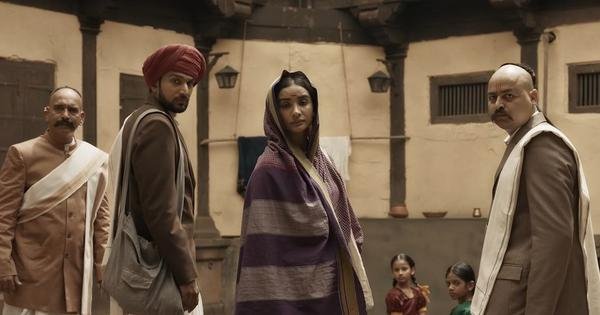Censorship of Caste References in ‘Phule’

Delayed Release of Ananth Mahadevan’s ‘Phule’
Ananth Mahadevan’s film ‘Phule’, about 19th-century anti-caste activists Jyotirao Phule and Savitribai Phule, faced a delayed release due to censorship issues. The Central Board of Film Certification asked Mahadevan to edit out overt references to caste, even though these details are present in previous biopics of the reformers.
Previous Biopics: ‘Satyashodhak’ and ‘Mahatma Phule’
- Nilesh Jalamkar’s ‘Satyashodhak’ (2023)
- PK Atre’s ‘Mahatma Phule’ (1954)
Both films depict widely chronicled events that shaped Phule’s journey, including caste-specific references and social and historical details.
Language and Intended Audience
The difference between ‘Phule’ and the previous biopics lies in the language and intended audience. While ‘Satyashodhak’ and ‘Mahatma Phule’ are in Marathi, ‘Phule’ is in Hindi, aiming for a wider viewership.
Censorship and Objections
- Censor Board removed depictions of discrimination fought by Jyotirao and Savitribai Phule
- Objections raised by Brahmin groups like Akhil Bhartiya Brahmin Samaj and Parshuram Aarthik Vikas Mahamandal
The excisions were ordered after Brahmin groups objected to the film’s trailer, claiming it to be one-sided and potentially instigating caste-based tensions.
Details Edited Out
- Mentions of Mang and Mahar groups
- References to Manu and Manusmriti
- Peshwa rule in Maharashtra
- Line stating ‘3,000 saal puraani gulaami’ changed to ‘kai saal purani hai’
Ananth Mahadevan’s Response
Mahadevan asserted that ‘Phule’ is based on published research and does not pursue a political agenda. The film’s publicists confirmed that the cuts have been carried out ahead of the planned release on April 25.
Shyam Benegal’s ‘Bharat Ek Khoj’
Phule’s mission was also explored in an episode of Shyam Benegal’s television series ‘Bharat Ek Khoj’ (1988-1989).
Nilesh Jalamkar’s ‘Satyashodhak’
- Incidents shown in ‘Satyashodhak’ are based on credible sources
- Film did not face major problems at the censor board or during theatrical release
- State government supported the film and gave it tax-free status
Jalamkar’s Precautions
Jalamkar included only anecdotes that appeared in more than one book about Phule and ignored incidents where there was no agreement among different writers.
Phule’s Crusade Against Brahminical Oppression
In ‘Mahatma Phule’ and ‘Satyashodhak’, Phule’s crusade against Brahminical oppression of lower castes is articulated through rational and forceful arguments.
Language and Censorship
Language itself could be the reason Mahadevan’s movie was singled out for censure and censorship, as ‘Phule’ targets a wider viewership compared to Marathi films.
Localization of Revolutionary Heroes
The “localization of revolutionary heroes” results in these figures being bracketed into designated, controllable spaces, making it difficult for Hindi filmmakers to freely explore social injustice.
Maharashtra Government’s Stance
On Phule’s 198th birth anniversary, the Maharashtra government issued newspaper advertisements hailing Phule as a ‘Krantisurya’ – a glorious revolutionary.
Revolutionary Potential of ‘Phule’
A film with a protagonist like Phule has revolutionary potential, and it is difficult to resist from the space where Phule’s thoughts organically evolved.
With inputs from Divya Aslesha.



